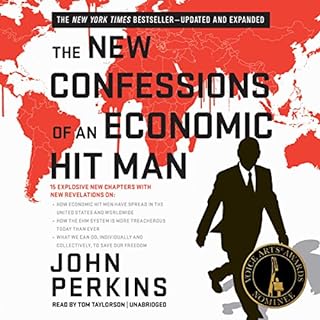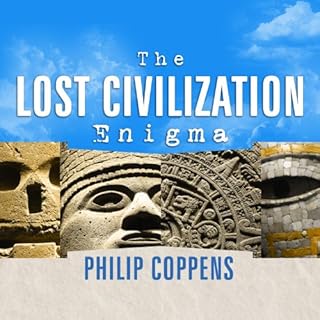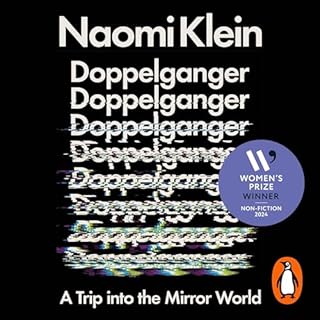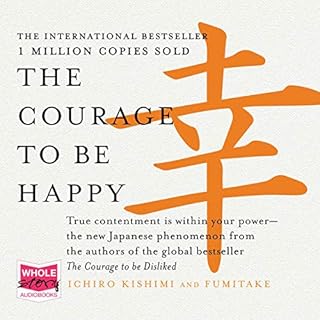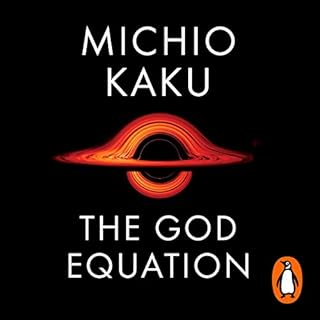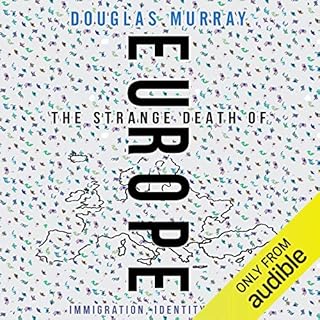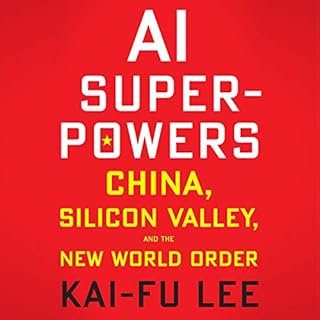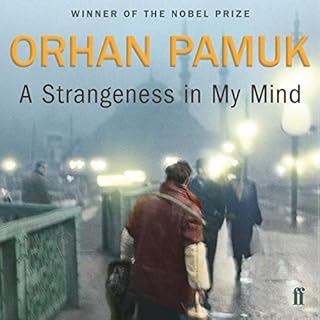Anonymous
- 127
- reviews
- 167
- helpful votes
- 127
- ratings
-
The New Confessions of an Economic Hit Man
- By: John Perkins
- Narrated by: Tom Taylorson
- Length: 12 hrs and 22 mins
- Unabridged
-
Overall4.5 out of 5 stars 737
-
Performance4.5 out of 5 stars 612
-
Story4.5 out of 5 stars 612
The previous edition of this now-classic book revealed the existence and subversive manipulations of "economic hit men". John Perkins wrote that economic hit men (EHM) "are highly paid professionals who cheat countries around the globe out of trillions of dollars. Their tools include fraudulent financial reports, rigged elections, payoffs, extortion, sex, and murder".
-
5 out of 5 stars
-
TERRIFYING!!!
- By Plamen on 24-08-18
- The New Confessions of an Economic Hit Man
- By: John Perkins
- Narrated by: Tom Taylorson
Eye Opening
Reviewed: 07-11-23
New Confessions of an Economic Hitman contains many historical events familiar to the reader, such as the 1953 US/UK overthrow of Mossadeg and the 1973 overthrow of Salvador Allende, however, Perkins brings additional light to many other EHM hits, such as Venezuela and Ecuador. Perkins sheds additional light on the very real attempt on Hugo Chavez as well as the various attempts to undermine and overthrow Rafael Correa in Ecuador.
The extent of CIA involvement in Latin America is simply mind boggling, and this book offers a glimpse into the very dark world of EHM activity.
Indeed, Perkins was not an employee of the CIA, he was an employee of Maine, a corporation. What matters is the extent to which economic tools are weaponised against countries that do not align themselves with US interests.
The book digresses into a very long tract on Social Justice toward the end, including laying out some arguments for Environmental and Social Governance (although its never mentioned, it is explained in everything but name).
Overall, an insightful and informative tour de force of a dark espionage world many would prefer to believe didn't exist.
Something went wrong. Please try again in a few minutes.
You voted on this review!
You reported this review!
-
The Lost Civilization Enigma
- A New Inquiry into the Existence of Ancient Cities, Cultures, and Peoples Who Pre-Date Recorded History
- By: Philip Coppens
- Narrated by: David Drummond
- Length: 9 hrs and 40 mins
- Unabridged
-
Overall4 out of 5 stars 66
-
Performance4 out of 5 stars 57
-
Story4 out of 5 stars 57
Are history books giving us the whole story? Or is civilization far more complex and for older than we have been taught? Our school textbooks barely mention the 6,000-year-old Sumerian civilization, yet the latest archaeological findings at sites such as Jericho, and most recently, Gobekli Tepe in Turkey, have been dated to 10,000 BC. Civilization goes back at least another 10,000 years, if we are willing to believe what our ancestors themselves claimed.
-
3 out of 5 stars
-
history robot
- By MR on 13-04-13
- The Lost Civilization Enigma
- A New Inquiry into the Existence of Ancient Cities, Cultures, and Peoples Who Pre-Date Recorded History
- By: Philip Coppens
- Narrated by: David Drummond
A decent addition to the Lost Civilisation genre
Reviewed: 07-11-23
Philip Coppens lays out a great bodywork of evidence for lost civilisations, including places not previously covered by Graham Hancock, such as Northern Europe.
A particular strength is how Coppens discects the corruption and institutional malaise rife in archaeology in greater detail than found in Graham Hancock. Particularly how Coppens examines the rather sordid career of Zahi Hawass, the Egyptian director of Antiquities.
On the whole, the book is very similar to the works of Graham Hancock, who is undoubtedly the master of this genre, however, if one is wondering if they should read this in addition to Hancock, the answer is a firm yes. Coppens brings different insights and different regions to the table, and this book should surely be on the reading list of all people interested in the field of lost civilisations.
Something went wrong. Please try again in a few minutes.
You voted on this review!
You reported this review!
-
Doppelganger
- A Trip into the Mirror World
- By: Naomi Klein
- Narrated by: Naomi Klein
- Length: 14 hrs and 47 mins
- Unabridged
-
Overall4.5 out of 5 stars 365
-
Performance5 out of 5 stars 349
-
Story4.5 out of 5 stars 349
When Naomi Klein discovered that a woman who shared her first name, but had radically different, harmful views, was getting chronically mistaken for her, it seemed too ridiculous to take seriously. Then suddenly it wasn't. She started to find herself grappling with a distorted sense of reality, becoming obsessed with reading the threats on social media, the endlessly scrolling insults from the followers of her doppelganger. Why had her shadowy other gone down such an extreme path? Why was identity - all we have to meet the world - so unstable?
-
5 out of 5 stars
-
Brilliant
- By Tony R. on 16-09-23
- Doppelganger
- A Trip into the Mirror World
- By: Naomi Klein
- Narrated by: Naomi Klein
Serves exactly the purpose I bought it for
Reviewed: 12-10-23
Being familiar with Naomi Klein’s work, having read the compelling, if not altogether honest, Shock Doctrine, many years ago, I thought I would read this as a window into how the modern left views the current state of affairs. What I received was all my questions answered and then some.
Doppelganger refers to the confusion between Naomi Klein and Naomi Wolf, a mistake I made peraps once, but as the reader will become aware, one that has been taken to whole new levels by the lazy netizens on both the left and the right.
Naomi Klein takes issue with just about all the positions of “other Naomi” these days, however, the most telling matter is the response to the Pandemic.
Rather than eating humble pie in the face of the now overwhelming evidence that the lockdown measures were ineffective, that vaccines weren’t quite as great as we were told, Klein just repeats the standard narrative as though you were listening to Anthony Fauci in 2020, only Klein makes the admission I had been waiting for. Klein openly admits that the Pandemic showed the merits of acting collectively and accepting individual inconvenience, out of respect for the greater good. In Essence, Shock Doctrine for Socialism.
This is the essential thread for the entire narrative with the climate, again pushing the sensationalist claims of catastrophic global warming, and the need to act on a global scale, and then, in other parts of the book, denying that there is such a thing as “Globalists” and insinuating that the term is a cover for anti-semitism.
(Side note, Globalist is simply a term for people who advocate the unfettered free flow of goods, ideas and people globally, and treat the nation state as at best an inconvenience. Not exactly a secret aspiration)
Klein pushes similar lies of the left, such as smeering the Canadian Trucker Convoy as being racists and white nationalists, rather than protesting for one’s bodily autonomy, and uses similar smeers to those who object to the inclusion of Critical Race Theory within one’s education.
Further in the chapter regarding the two trucker convoys, Klein reveals her outright hostility to Christianity wherein discussing the reckoning following the First Nation Residential Schools revelation, she writes;
“As in the reckonings sparked by the murder of George Floyd in 2020, the truth about the unmarked graves that surfaced in 2021 sparked waves of rage, grief, and solidarity across Canada. Statues of colonial figures who helped design these twisted institutions were toppled; a major university changed its name; churches were burned.” (Klein 2023: 142)
Telling that she includes the burning of churches along side other actions she is clearly in favour of. Indeed, she shows none of the vitriol she reserves for the likes of Trump or Bannon when she is discussing Trotsky (himself a mass murderer) in the chapter concerning the othering of Jews, wherein she (herself a Jew) tellingly acknowledges; “Just as Jews, because they were barred from so many other industries, were overrepresented in finance, Jews were also overrepresented among revolutionary socialists and communists. Like, really overrepresented. ” (Klein 2023: 161)
At the end of the day, Klein makes no secret of her views, early on she states; “I am a third-generation leftist who believes freedom is won collectively and gets itchy around flags.” (Klein 2023: 23) so its not the purpose of this review to act as a Sherlock and say “aha, I figured her out, she’s a leftist”, rather, the purpose of this book is to discern how the left thinks.
To sum up, Doppelganger taught me the following;
• The Left accepts standard narratives on matters like Covid-19 or Global Warming because it suits Socialist agendas.
• The Left’s hostility to the Nation and Christianity is very real, or at least it is with a Leftist like Klein.
• Klein and other Leftists hate Musk for his rebranding of Twitter as a true free speech platform, or rather a hate speech platform as Klein and her ilk would have you believe (hate speech is the preferred term for views contrary to those of the left).
In short, Doppelganger is very useful reading, as it gives one a greater dive into how the modern left thinks, and their designs upon society. Anybody who cares about preserving their Faith, their Nation and their traditions should read this book and take note.
Something went wrong. Please try again in a few minutes.
You voted on this review!
You reported this review!
1 person found this helpful
-
The Courage to Be Happy
- True Contentment Is Within Your Power
- By: Fumitake Koga, Ichiro Kishimi
- Narrated by: January LaVoy, Noah Galvin
- Length: 6 hrs and 10 mins
- Unabridged
-
Overall4.5 out of 5 stars 214
-
Performance4 out of 5 stars 187
-
Story4.5 out of 5 stars 185
The Courage to Be Happy presents profound insights into living life courageously and finding happiness along the way. It has already sold more than a million copies in Japan and is a sequel to The Courage to Be Disliked, which has changed lives across the globe as an international best-selling sensation. As in The Courage to Be Disliked, we follow a Socratic dialogue between a philosopher and a young man.
-
3 out of 5 stars
-
Another superfluous sequel.
- By Omar days on 09-06-20
- The Courage to Be Happy
- True Contentment Is Within Your Power
- By: Fumitake Koga, Ichiro Kishimi
- Narrated by: January LaVoy, Noah Galvin
Interesting insight into Adlerian Psychology
Reviewed: 23-04-23
An interesting insight into Adlerian Psychology, The Courage to be Happy is more of a guide to educational psychology taking the form of a dialogue between a mentor and mentee, the latter who often responds with incredulity to many of the claims of Adlerian Psychology.
A decent book for anyone who wants to explore the psychology of serving and understanding others better, and in turn gaining a greater degree of self-worth.
Something went wrong. Please try again in a few minutes.
You voted on this review!
You reported this review!
1 person found this helpful
-
The God Equation
- The Quest for a Theory of Everything
- By: Michio Kaku
- Narrated by: Feodor Chin
- Length: 5 hrs and 30 mins
- Unabridged
-
Overall4.5 out of 5 stars 140
-
Performance4.5 out of 5 stars 116
-
Story4.5 out of 5 stars 116
This is the story of a quest: to find a Theory of Everything. Einstein dedicated his life to seeking this elusive Holy Grail, a single, revolutionary 'god equation' which would tie all the forces in the universe together, yet never found it. Some of the greatest minds in physics took up the search, from Stephen Hawking to Brian Greene. None have yet succeeded. In The God Equation, renowned theoretical physicist Michio Kaku takes the listener on a mind-bending ride through the twists and turns of this epic journey: a mystery that has fascinated him for most of his life.
-
1 out of 5 stars
-
A book with a message - and the message is, “Avoid!”
- By George Ballentyne on 16-05-21
- The God Equation
- The Quest for a Theory of Everything
- By: Michio Kaku
- Narrated by: Feodor Chin
The Best Theoretical Physics book money can buy
Reviewed: 14-04-23
Perhaps Michio Kaku's most comprehensive, concise and readable popular science book, and one of the best out there.
Like many other titles, Kaku's work gives an overview of the history of theoretical physics, however, this one seems to weave together into a more understandable whole than other titles out there.
Having read other works by contemporaries such as Brian Greene and Lisa Randall, Kaku's work is far more readable and one comes away having absorbed so much more.
As such, this ranks as the absolute must read work of theoretical physics. Unlike others where much washes over me, I came across from this one with a much clearer idea of what a Theory of Everything entails, which is my primary reason for reading.
An additional treat is that Kaku leaves no big question unanswered. If there is a multi-verse, where did the multi-verse come from? Did God have a choice in creating the Universe? And so much more.
Kaku's work is not only immensely readable, it makes you the reader think more, which is why I rank it as the best book on theoretical physics I have yet read.
Something went wrong. Please try again in a few minutes.
You voted on this review!
You reported this review!
-
The Strange Death of Europe
- Immigration, Identity, Islam
- By: Douglas Murray
- Narrated by: Robert Davies
- Length: 12 hrs and 17 mins
- Unabridged
-
Overall4.5 out of 5 stars 2,592
-
Performance4.5 out of 5 stars 2,278
-
Story4.5 out of 5 stars 2,265
The Strange Death of Europe is a highly personal account of a continent and culture caught in the act of suicide. Declining birth rates, mass immigration, and cultivated self-distrust and self-hatred have come together to make Europeans unable to argue for themselves and incapable of resisting their own comprehensive alteration as a society and an eventual end.
-
4 out of 5 stars
-
very good, but do be careful
- By julien on 06-08-17
- The Strange Death of Europe
- Immigration, Identity, Islam
- By: Douglas Murray
- Narrated by: Robert Davies
Worth considering, even if you disagree
Reviewed: 14-04-23
The writings of Douglas Murray are thought provoking, if not easily digestible to many. The Strange Death of Europe contends on 2 central notions, the decline of European culture through the mass introduction of people's with higher fertility rates, which reached an Apotheosis of sorts following the 2015 influx.
The way one will receive this book depends on one's answer to the golden question, are European Values and Islamic Values compatible. Murray firmly comes down on the side of No.
If one comes down on the side of Yes, such as this reader, that does not mean that one should not read this book. Reading it will challenge your position and explore a counter argument, and is that not what good reading should do?
This reader came away from this book not with a distaste toward Islam or Muslims, rather with an even stronger distaste toward the indigenous, secular white Europeans who want to wilfully eviscerate their own culture and identity.
At least Muslims actually believe in something, the secular, woke European Left believe in nothing, and that's the problem, and that truly is the main cause of death for Europe.
Something went wrong. Please try again in a few minutes.
You voted on this review!
You reported this review!
-
The Future of Humanity
- Terraforming Mars, Interstellar Travel, Immortality, and Our Destiny Beyond
- By: Michio Kaku
- Narrated by: Feodor Chin
- Length: 12 hrs and 22 mins
- Unabridged
-
Overall4.5 out of 5 stars 386
-
Performance4.5 out of 5 stars 329
-
Story4.5 out of 5 stars 330
Penguin presents the audiobook edition of The Future of Humanity by Michio Kaku, read by Feodor Chin. Human civilisation is on the verge of spreading beyond Earth. More than a possibility, it is becoming a necessity: whether our hand is forced by climate change and resource depletion or whether future catastrophes compel us to abandon Earth, one day we will make our homes among the stars.
-
3 out of 5 stars
-
Good overview, but a little disappointing.
- By Heisenberg on 10-03-18
- The Future of Humanity
- Terraforming Mars, Interstellar Travel, Immortality, and Our Destiny Beyond
- By: Michio Kaku
- Narrated by: Feodor Chin
A true visionary
Reviewed: 05-04-23
Michio Kaku does convincingly what few others can, he takes the most fantastical plot devices conceivable within Science Fiction and turns them into Science Fact.
I have read other works of Futurology, however the imagination of this work exceeds all the others on so many different levels.
Anyone looking for the fantastic imagination will have to wait patiently until the last few chapters, as the book begins as a rather textbook history of astronomy, the solar system and the physics of space travel. Anyone familiar with planetary travel could perhaps skip this part, unless like me you feel you need a refresher.
The book gets especially creative in the last few chapters wherein he examines the possibility of interstellar, even inter dimensional travel, and even proposes remedies for saving the Universe. No I'm not kidding, Michio Kaku has solutions for escaping either heat death, entropy or other end of time scenarios.
A superb work that establishes Michio Kaku as one of the great minds of our time, and a great demonstration of Einstein's adage that "imagination is more important than knowledge."
Something went wrong. Please try again in a few minutes.
You voted on this review!
You reported this review!
-
The Phoney Victory
- The World War II Illusion
- By: Peter Hitchens
- Narrated by: Peter Hitchens
- Length: 8 hrs and 20 mins
- Unabridged
-
Overall4.5 out of 5 stars 321
-
Performance4.5 out of 5 stars 280
-
Story4.5 out of 5 stars 277
Was World War II really the 'Good War'? In the years since the declaration of peace in 1945, many myths have sprung up around the conflict in the victorious nations. In this audiobook, Peter Hitchens deconstructs the many fables which have become associated with the narrative of the 'Good War'. Whilst not criticising or doubting the need for war against Nazi Germany at some stage, Hitchens does query whether September 1939 was the right moment or the independence of Poland the right issue.
-
2 out of 5 stars
-
What annoys Peter Hitchens about WW2
- By Kindle Customer on 05-02-19
- The Phoney Victory
- The World War II Illusion
- By: Peter Hitchens
- Narrated by: Peter Hitchens
Familiar Facts, Different Narrative
Reviewed: 29-12-22
Peter Hitchens examines what I have long suspected to be true, but perception was obscured by prevailing narratives.
As an undergraduate I was always mystified that Britain went to war for Poland only to give it to the Soviets 5 years later. In fact, Britain never actually went to war for Poland, and war could have been avoided.
Peter Hitchens's book certainly is not one for those who wish to avoid painful truths or to cling to romanticized myths. Hitchens examines painful truths that are well known, but rarely publicised, such as the senseless bombing of German civilians, or the even lesser known ethnic cleansing of Germans in European territories after the War.
Hitchens book uses painful truths and presents a very different Narrative. No doubt difficult for many to accept, but a truly compelling read.
Something went wrong. Please try again in a few minutes.
You voted on this review!
You reported this review!
-
AI Superpowers
- China, Silicon Valley, and the New World Order
- By: Kai-Fu Lee
- Narrated by: Mikael Naramore
- Length: 9 hrs and 28 mins
- Unabridged
-
Overall4.5 out of 5 stars 627
-
Performance4.5 out of 5 stars 541
-
Story4.5 out of 5 stars 538
In AI Superpowers, Kai-fu Lee argues powerfully that because of these unprecedented developments in AI, dramatic changes will be happening much sooner than many of us expected. Indeed, as the US-Sino AI competition begins to heat up, Lee urges the US and China to both accept and to embrace the great responsibilities that come with significant technological power.
-
3 out of 5 stars
-
THE ELEPHANT IN THE ROOM
- By D. S. Basi on 16-06-19
- AI Superpowers
- China, Silicon Valley, and the New World Order
- By: Kai-Fu Lee
- Narrated by: Mikael Naramore
Highly informative, positive and life affirming
Reviewed: 13-12-22
Kai-Fu Lee is certainly an authority on the subject of AI, and what is more the book is well written and digestible, making it an enjoyable read.
Lee posits that China has an edge in AI, and this may shape China's future direction, but this is not a Zero Sum Game. AI can benefit us all if we are sensible in its application.
Lee warns about the likelihood of job losses, but this does not portend to a Dystopia, rather Lee uses the example of his battle with Lymphoma as testament to the fact that AI can never replace humans because AI lacks humanity. As such, humans have to coexist with AI and new jobs and professions may be created the likes of which we may never have previously imagined, just like how the modern age gave birth to professions which Victorians could not have conceived of.
The narration is well paced and never makes the book tiring, unlike other works.
Over all, a positive, informative, and in some ways, life affirming book.
Something went wrong. Please try again in a few minutes.
You voted on this review!
You reported this review!
-
A Strangeness in My Mind
- By: Orhan Pamuk
- Narrated by: John Lee
- Length: 21 hrs and 48 mins
- Unabridged
-
Overall4.5 out of 5 stars 67
-
Performance4.5 out of 5 stars 57
-
Story4.5 out of 5 stars 57
At a family wedding Mevlut catches sight of a girl with whom he falls in love. After a secret courtship of letters passed via his cousin, she agrees to elope with him, and on a dark night the two come together for the first time. As they rush to catch a train to Istanbul, Mevlut realises he has been misled. But the die is cast, and the situation will determine the rest of his days. Over the next four decades in Istanbul, Mevlut works various jobs to support his loving wife and family - work that gives him a special perspective on his rapidly changing city and the people who live there.
-
5 out of 5 stars
-
stunning!!!!
- By Anonymous User on 21-11-20
- A Strangeness in My Mind
- By: Orhan Pamuk
- Narrated by: John Lee
Sweeping Epic
Reviewed: 07-12-22
An unusual sweeping tale of an Istanbul Street Vendor throughout the late 20th century. Pamuk’s sweeping narrative takes the reader through the social changes and attitudes of Turkey, highlighting the differences between the secular and religious elements of society, tradition vs modernity and the ever changing politics of the time.
Of particular note are the sequences wherein the central character observes various leftwing movements, including the Chinese and Soviet Rivalries played out in the local politics.
The book doesn’t seem too eventful, so those expecting action and plot twists may be disappointed, however, this is a book about feeling more than anything else.
The narration by John Lee, is, as always, superb. Anyone who has listened to the Audible performances of Snow or My Name is Red will be happy to hear the familiar voice performing once again.
Something went wrong. Please try again in a few minutes.
You voted on this review!
You reported this review!
3 people found this helpful

